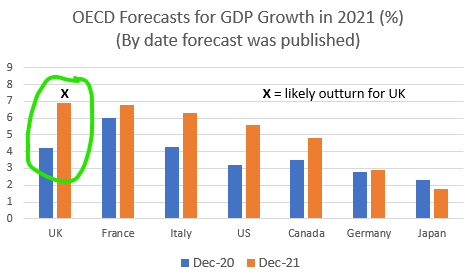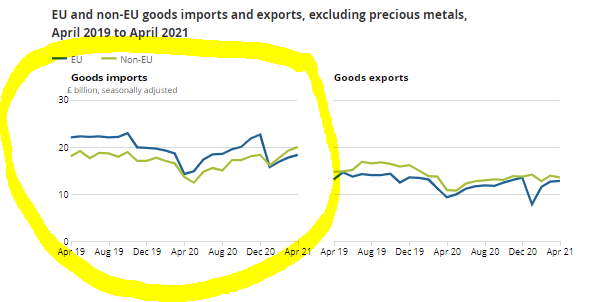
Some thoughts on the proposed #energy bill freeze... 🧵
Based on media reports, the idea is to cap the unit cost of energy by subsidising suppliers so that they do not have to pass on higher wholesale prices in full, either to households or to businesses… (1/10)
#energycrisis
Based on media reports, the idea is to cap the unit cost of energy by subsidising suppliers so that they do not have to pass on higher wholesale prices in full, either to households or to businesses… (1/10)
#energycrisis
On the plus side, this would lift the huge cloud of uncertainty which is now hanging over the whole economy. The peak in #inflation would also be much lower.
With this plan in place, the new government can score a big 'win' and quickly move on to other priorities... (2/10)
With this plan in place, the new government can score a big 'win' and quickly move on to other priorities... (2/10)
But this is another huge intervention which will distort markets even further, mainly help higher users of energy, and could be very expensive.
Consumers will still have some incentive to reduce bills by using less energy, but much less than if prices were free to adjust. (3/10)
Consumers will still have some incentive to reduce bills by using less energy, but much less than if prices were free to adjust. (3/10)
A freeze on energy bills would be a blanket subsidy for everybody, and potentially unlimited.
In contrast, #furlough was much better targeted (the government only paid towards the wages of those who were unable to work), and it was capped (at 80% of average earnings). (4/10)
In contrast, #furlough was much better targeted (the government only paid towards the wages of those who were unable to work), and it was capped (at 80% of average earnings). (4/10)
The balance here depends on many unknowns, notably the level at which the price cap would be set, how long it would last, how much this would cost (which would also depend on what happens to wholesale prices over the life of the cap), and how this would all be paid for... (5/10)
My own rough estimate is that fixing at the current (April) #Ofgem cap, for two years, would indeed cost around £100 billion – just for households.
This is based on the latest wholesale prices, which are unlikely to remain this high, but of course we cannot bank on that. (6/10)
This is based on the latest wholesale prices, which are unlikely to remain this high, but of course we cannot bank on that. (6/10)
There might be some savings to reduce the net cost. If bills were not frozen, the government would presumably have had to provide more targeted support anyway, probably in the tens of £billions. Lower inflation could also reduce the debt interest and social security bills. (7/10)
But fixing instead at the new higher (October) level could roughly halve the cost – say to £50 billion.
This might require some extra top ups for the most vulnerable households. Repeating Rishi Sunak’s package for those on benefits might cost another £10 billion... (8/10)
This might require some extra top ups for the most vulnerable households. Repeating Rishi Sunak’s package for those on benefits might cost another £10 billion... (8/10)
The other big issue is how to pay for this. Energy suppliers originally proposed a surcharge on customer bills over ten to twenty years.
But it would probably be better (cheaper and more progressive) just to cover this cost with additional government borrowing… (9/10)
But it would probably be better (cheaper and more progressive) just to cover this cost with additional government borrowing… (9/10)
Obviously, the bond markets won’t like that. But other countries are also likely to have to do similar things, and a deep recession would be even more damaging in the long run.
This could therefore be the worst plan – apart from the all the others. (10/10)
This could therefore be the worst plan – apart from the all the others. (10/10)
• • •
Missing some Tweet in this thread? You can try to
force a refresh







